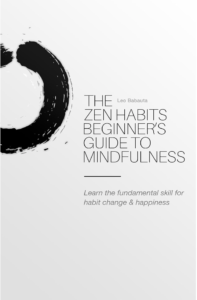Master Mindfulness: Elevate Your Daily Habits with These Engaging Tips
The importance of practicing mindfulness
The significance of practicing and being able to master mindfulness lies in its ability to cultivate presence in every moment, allowing you to savor life and intentionally slow down. Consequently, this practice yields improvements in mental health, enhancing focus, memory, and self-control. It’s crucial to recognize that mindfulness isn’t reserved solely for the hippies among us.
Benefits of incorporating mindfulness habits into your daily routine
The integration of mindfulness habits into your daily routine can bring about transformative effects. This incorporation leads to a simpler and more contented life, enabling you to appreciate the nuances of existence. Furthermore, it contributes to heightened productivity and academic performance. Meditation, a widely embraced form of mindfulness practice, extends beyond stereotypes and is not exclusive to the woo-woo crowd.
So, let’s collectively take a deep breath and infuse mindfulness into our daily routines. Namaste.[1][2][3][4]
Understanding Mindfulness to Master Mindfulness
What is mindfulness?
Ah, mindfulness. The art of being present, paying attention to the present moment, and not being distracted by all the other thoughts and worries in your head. It’s basically like giving your brain a break and learning to focus on the here and now.
The principles and concept of mindfulness
The principles of mindfulness are simple: being present, being non-judgmental, and being aware. It’s all about learning to focus on the present moment, accepting what is happening around you, and not getting bogged down by your own thoughts and worries. So, sit back, relax, and just be. Isn’t that the dream?

The Science of Mindfulness
Research studies and scientific findings on mindfulness
Did you know that mindfulness has been proven to reduce stress, anxiety, and depression? It’s true! Research studies have shown that practicing mindfulness can even lower blood pressure and improve your immune system. So, the next time you’re feeling stressed, take a deep breath and try some mindfulness exercises.
The connection between mindfulness and mental health
As somebody with ADHD and uni-polar depression, I can confirm that mindfulness has definitely improved my mental health. The act of being present and not letting my mind wander has helped me to focus and be more productive. It’s also been shown to improve memory and cognitive function. So, if you’re feeling a little scatter-brained, give mindfulness a try! Your brain will thank you. [9][10][11][12]
The Zen Habits Beginner’s Guide to Mindfulness
Overview of the book
To master mindfulness is not easiest of feats, however I do turn to help from other places such as the book, The Zen Habits Beginner’s Guide to Mindfulness is a comprehensive guide for anyone seeking to improve their mental health and overall well-being. The book is authored by Leo Babauta, a renowned blogger and mindfulness expert, who shares his personal experiences with mindfulness and practical exercises for beginners.
Key takeaways from the book
- Practicing mindfulness can decrease stress, anxiety, and depression.
- Mindfulness exercises can improve memory and cognitive function.
- Being present and focused can lead to increased productivity and a more fulfilling life.
- Mindfulness can be practiced anywhere and anytime, making it a simple yet effective tool for mental wellness.

https://rb.gy/ilgwhi
The Practice of Mindfulness
Master mindfulness in your daily life
I have tried incorporating mindfulness into my daily routine the experience has been life-changing. Simple things like taking a deep breath and being present in the moment can do wonders for your mental health. Leo Babauta’s book, The Zen Habits Beginner’s Guide to Mindfulness, provides practical advice on how to cultivate this practice in your daily life.
Master mindfulness – Breathing and meditation techniques.
One of the key techniques for mindfulness is through conscious breathing. The book covers various breathing exercises and meditation techniques, from breath awareness to exploring different methods of mindful breathing. The best part? You can do it anywhere and anytime! It’s like having your little zen garden in your pocket. Trust me, you won’t regret giving it a try. There are also some great apps to help one on their journey to master mindfulness. [17][18][19][20]
To name but a few, I would also recommend searching youtube.com for free guided meditation videos.

Master Mindfulness through Mindful Eating
The concept of mindful eating
Mindful eating is a technique that promotes a healthy relationship with food. By being aware of your physical hunger and satiety cues, you can make better eating decisions and avoid overeating. It involves being present in the moment, savoring every bite, and focusing on the sensations that come with it.
Tips to practice mindful eating to master mindfulness
As a registered dietitian, I recommend tips to start practicing mindful eating:
- Take a moment to assess your hunger level before eating
- Slowly chew your food and appreciate the flavors and textures
- Put your fork down between bites to avoid mindlessly eating
- Avoid distractions such as television or phone while eating
Remember, mindful eating is not a diet or restrictive meal plan. It’s about being present and enjoying the experience of eating. So why not give it a try and see how it can improve your relationship with food? Trust me, your taste buds will thank you later. [21][22][23][24]

Master Mindfulness through Mindful Communication
The power of mindful communication
As a writer, I believe in the power of words. Mindful communication is about becoming aware of our words and how they affect others. It can improve relationships, reduce conflicts, and lead to more meaningful conversations. Mindful communication encourages us to listen actively, speak thoughtfully, and be fully present.
Ways to improve your communication skills using mindfulness
Here are some tips to improve communication skills using mindfulness:
- Pause and take a deep breath before responding to someone
- Listen to understand, not just to reply
- Be present and give your full attention to the person you are talking to
- Choose words carefully and avoid negative language
- Express gratitude and appreciation for the other person’s perspectives
Remember, practicing mindful communication takes time and effort, but it’s worth it. The more we practice, the more natural it becomes, and the better our relationships and conversations will be. Plus, it’s a great excuse to focus on improving your witty banter tendency.
Master Mindfulness and Productivity
The impact of mindfulness on productivity
I can attest that mindfulness has a significant impact on our productivity. By being fully present and focused, we can eliminate distractions and get more done in less time. We can also reduce stress levels and increase creativity, leading to better quality work.
How to increase your productivity using mindfulness techniques to work towards master mindfulness.
Here are some tips to increase productivity using mindfulness techniques:
- Start your day with a mindful morning routine
- Take short breaks throughout the day to breathe and refocus
- Practice single-tasking instead of multitasking
- Schedule time for mindfulness meditation to recharge your mind
- Set boundaries and prioritize your tasks
Remember, productivity is not just about getting things done—it’s about doing things with intention and purpose. Mindfulness can help us achieve this, leading to a more fulfilling work and personal life. Plus, you’ll have more time to binge-watch your favorite TV shows guilt-free! [29][30][31][32]
The Bottom Line: My Take on Mindfulness and Productivity
Benefits of practicing and master mindfulness
Practicing mindfulness has numerous benefits. It can improve focus, creativity, and overall well-being. By taking time to be fully present in the moment, we can reduce stress and anxiety, and feel more in control of our lives.
Tips to maintain a consistent practice and master mindfulness
If you’re new to mindfulness, it can be challenging to make it a consistent practice. Here are some tips that can be helpful:
- Start small by committing to just a few minutes each day
- Set a reminder or schedule time on your calendar
- Get a meditation app that works for you to make it more fun.
- Find a buddy to practice with to stay motivated and accountable.
Master Mindfulness – Conclusion
In conclusion, practicing mindfulness is a no-brainer to master mindfulness. It’s a simple and accessible way to boost your productivity and overall well-being. I highly recommend it. Plus, who couldn’t benefit from a little more Zen in their life? [33][34][35][36]


